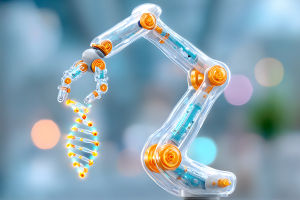Have you ever stopped to wonder whether bacteria are mostly harmful or helpful?
These microscopic organisms are everywhere—on your skin, in your gut, and all around the environment. While some bacteria are known for causing disease, many more are essential to our health and the planet’s ecosystems. Let’s take a closer look at the surprising world of bacteria and discover why they’re both our greatest allies and occasional enemies.
What Are Bacteria?
Bacteria are microscopic single-celled organisms found virtually everywhere — from soil and water to our skin and inside our bodies. Despite their tiny size, they are incredibly diverse, with millions of different types living around us.
Some bacteria cause illnesses, but many others are essential for life and offer many benefits.
How Bacteria Can Be Our Enemies
When people think of bacteria, they often imagine germs that cause diseases like infections, food poisoning, or sore throats. Indeed, certain harmful bacteria can invade our bodies, multiply quickly, and produce toxins that damage tissues.
Common examples include Staphylococcus causing skin infections or Salmonella leading to food poisoning. These "bad" bacteria can make us sick, sometimes seriously, which is why hygiene and antibiotics are important.
The Friendly Bacteria Inside Us
However, not all bacteria are harmful. In fact, many live peacefully inside us and help keep our bodies healthy. The gut, for example, is home to trillions of bacteria known as the "gut microbiome."
These friendly bacteria assist digestion, help produce vitamins, and protect against harmful microbes by competing for space and nutrients. Scientists have found that a balanced gut microbiome can improve immune function and even influence mood and mental health.
Bacteria in Food and Industry
Bacteria are also our allies in food production. Yogurt, cheese, sauerkraut, and pickles all rely on good bacteria to ferment and develop unique flavors.
Beyond food, bacteria are used in cleaning up oil spills, producing medicines like insulin, and recycling waste in the environment. Their abilities make them valuable partners in many industries.
How Bacteria Affect Our Environment
In nature, bacteria play crucial roles in breaking down organic matter and recycling nutrients, supporting plant growth and ecosystem health.
Without bacteria, dead plants and animals would not decompose efficiently, and soil fertility would suffer. They are fundamental to life on Earth in many unseen ways.
Keeping the Balance: Why It Matters
Our health depends on a balanced relationship with bacteria. Overuse of antibiotics, poor diet, or excessive hygiene can disturb this balance, leading to problems like antibiotic resistance or digestive issues.
Experts emphasize the importance of protecting beneficial bacteria while controlling harmful ones. This balance is key to preventing disease and promoting well-being.
Expert Insights on Bacteria and Health
Researchers like Dr. Martin Blaser, a microbiologist, have highlighted how modern lifestyle changes affect our microbiome and contribute to chronic conditions such as allergies and obesity.
Understanding and respecting bacteria's role helps us make better health choices, from diet to medication use.
Summary: Friends and Foes Coexist
Bacteria aren’t simply good or bad—they’re incredibly diverse organisms that play multiple roles in our lives. Some support our health, aid digestion, and maintain ecosystems, while others can cause infections when conditions shift. Understanding this balance helps us appreciate the powerful, double-edged nature of the bacterial world.


